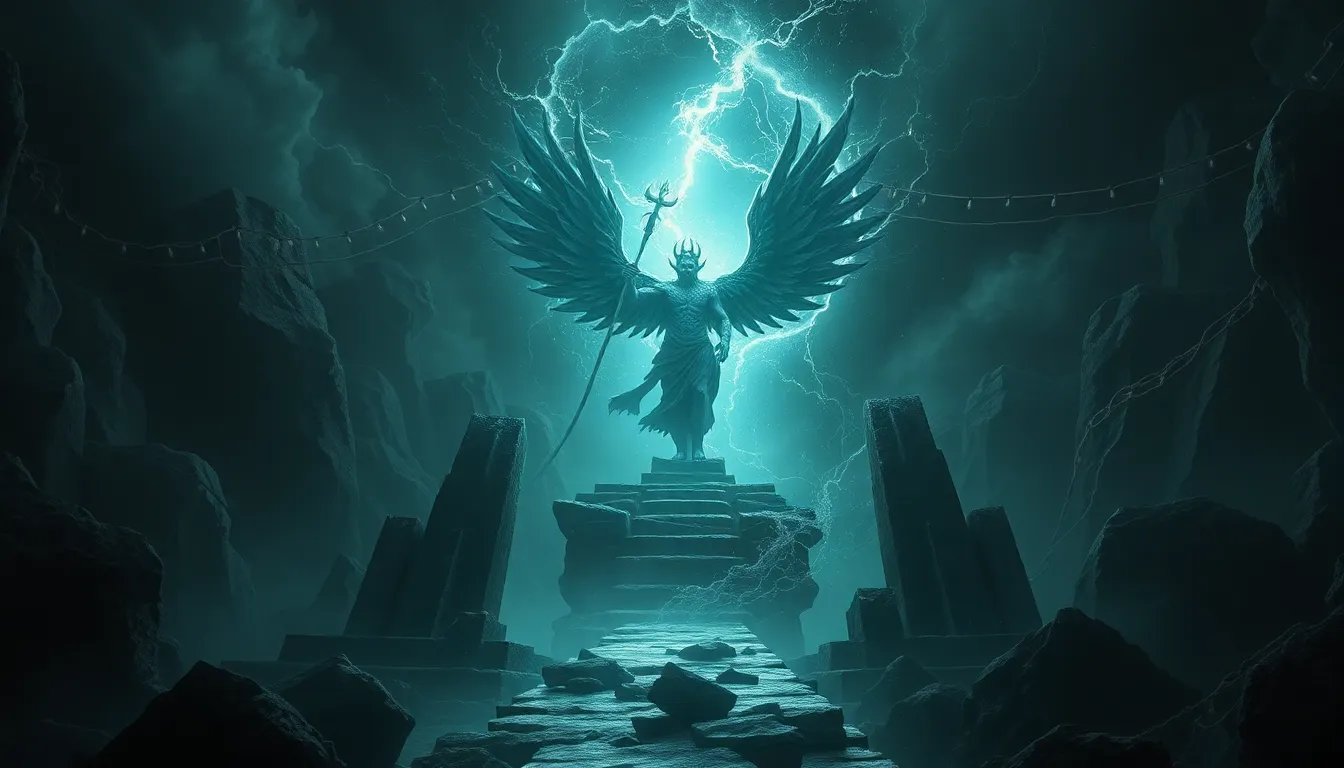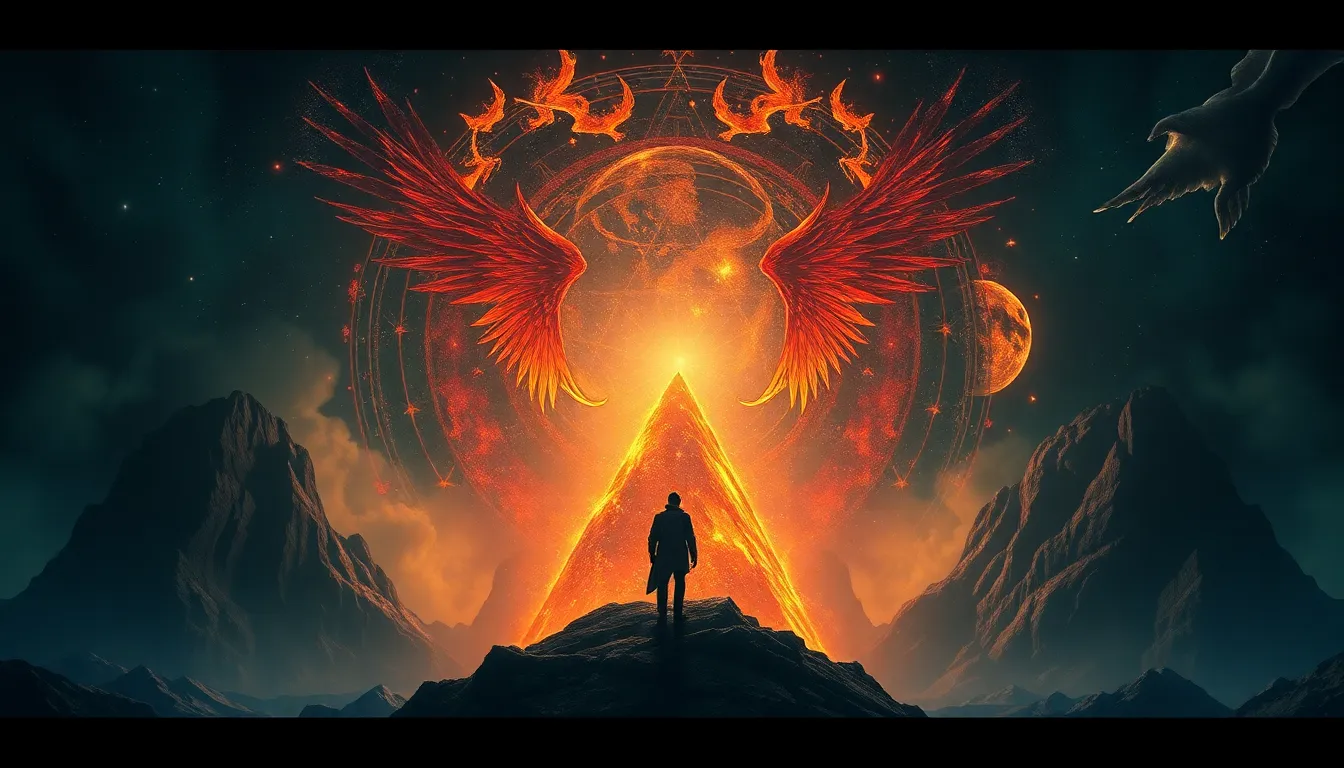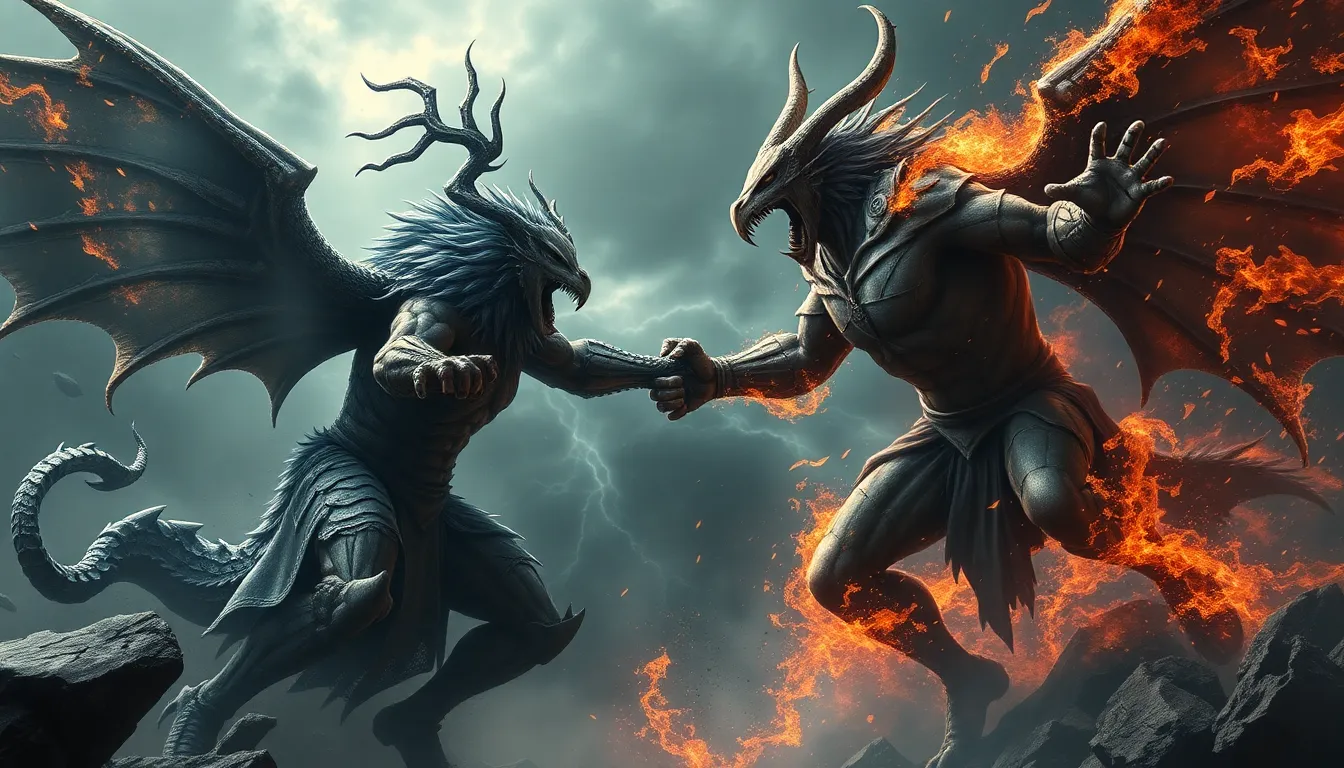The Dark Side of Divinity: Myths of Punishment Explored
I. Introduction
The concept of divinity often embodies a dual nature, representing both benevolence and justice. While many view gods and divine forces as sources of love and protection, there exists a darker side characterized by punishment and retribution. Across cultures and epochs, myths of divine punishment have served to explain suffering, moral decay, and the consequences of human actions.
This article aims to explore the darker aspects of divine punishment found in various mythologies, examining how these narratives have shaped human understanding of morality, justice, and fear.
II. Historical Context of Divine Punishment
The origins of the concept of divine retribution can be traced back to ancient civilizations such as the Mesopotamians, Egyptians, and Greeks. In these societies, the belief in gods who actively intervened in human affairs was prevalent, often manifesting as forms of punishment for wrongdoing.
Throughout history, these myths have evolved, reflecting changes in societal values and religious beliefs. As civilizations transitioned from polytheistic to monotheistic systems, the narratives surrounding divine punishment adapted accordingly, often becoming more pronounced and severe.
Religion and morality have played crucial roles in shaping these narratives, providing frameworks within which individuals understood their actions and the potential divine consequences.
III. Key Myths of Punishment in Major Religions
A. Christianity: The concept of hell and eternal damnation
Christianity presents one of the most profound concepts of divine punishment through the notion of hell, a place of eternal damnation reserved for the sinful. The teachings of Jesus, alongside various interpretations of scripture, have led to a fear-based understanding of divine justice that emphasizes the severity of moral transgressions.
B. Hinduism: Karma and the cycle of rebirth as divine punishment
In Hinduism, the law of karma serves as a fundamental principle governing moral causation. Good and bad deeds directly influence one’s future lives, with severe actions leading to unfavorable rebirths. This cyclical understanding of life and death reflects a form of divine punishment that operates across lifetimes, emphasizing moral responsibility.
C. Greek Mythology: The fates of Prometheus and Sisyphus
Greek mythology provides striking examples of divine punishment through the tales of Prometheus and Sisyphus. Prometheus, who defied the gods by giving fire to humanity, was condemned to eternal torment, while Sisyphus was condemned to roll a boulder up a hill for eternity, only for it to roll back down. Both myths illustrate the harsh repercussions of hubris and defiance against divine authority.
IV. The Psychological Impact of Punishment Myths
Myths of divine punishment have profound psychological impacts, particularly in instilling fear and control. These narratives often serve as cautionary tales that regulate behavior, compelling individuals to adhere to moral codes to avoid punitive consequences.
- Fear and control: Myths of punishment often instill a fear of divine retribution, encouraging conformity and moral behavior.
- The role of guilt and shame: Religious teachings frequently incorporate guilt and shame as tools for moral correction.
- Psychological analyses: Scholars analyze how fear-based belief systems can lead to anxiety and oppressive behavior within communities.
V. Case Studies: Myths of Punishment in Different Cultures
A. The Aztec practice of human sacrifice as divine appeasement
The Aztecs believed that human sacrifice was necessary to appease their gods and ensure the continuation of the world. This practice illustrates a stark example of how punishment myths can manifest in extreme actions intended to mitigate divine wrath.
B. Norse mythology: The punishment of Loki and the consequences of hubris
In Norse mythology, Loki’s punishment for causing chaos among the gods—being bound and subjected to the venom of a serpent—serves as a reminder of the consequences of hubris and betrayal within a communal context.
C. Indigenous beliefs: The role of spirits in enforcing moral order
Many Indigenous cultures hold beliefs in spirits that enforce moral order, punishing those who transgress societal norms. Such beliefs reinforce community values and maintain social cohesion through the fear of divine retribution.
VI. The Function of Punishment Myths in Society
Myths of punishment serve crucial functions within societies, including the reinforcement of community values and social cohesion. They often operate as tools for political and social control, shaping laws and ethical standards.
- Social cohesion: Punishment myths help reinforce shared values and norms, fostering a sense of belonging.
- Political control: Leaders may invoke divine punishment to legitimize their authority and maintain order.
- Impact on law and ethics: Legal systems often draw from moral teachings rooted in these myths, influencing societal norms and behaviors.
VII. Reinterpretations and Modern Perspectives
In recent times, there has been a shift from punitive to restorative justice perspectives, emphasizing healing and rehabilitation over punishment. Feminist and post-colonial critiques have also emerged, challenging traditional narratives of divine punishment and advocating for more inclusive interpretations.
Moreover, modern spirituality has seen a resurgence of interest in mythological narratives, often reinterpreting them in ways that emphasize personal growth and understanding rather than fear and punishment.
VIII. The Role of Art and Literature in Depicting Divine Punishment
Art and literature have long served as mediums for exploring the themes of divine punishment. Classic works, such as Dante’s “Inferno,” vividly illustrate the consequences of sin through intricate depictions of hell and its torments.
Contemporary interpretations in film and literature often grapple with these themes, reflecting societal anxieties and moral dilemmas. The influence of art in shaping public perceptions of punishment myths cannot be understated, as it continues to provoke thought and discussion.
IX. Ethical Considerations and Debates
The morality of divine punishment versus human justice raises significant ethical questions. The implications of punishment myths on societal behavior and justice systems warrant critical examination, particularly in light of modern understandings of ethics and morality.
As societies evolve, the challenge remains to reconcile these ancient narratives with contemporary values of compassion, forgiveness, and restorative justice.




